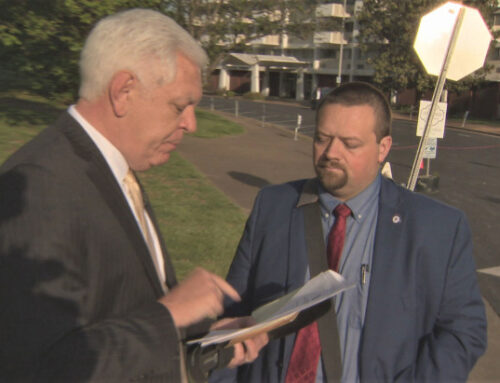Senior Judge Robert E. Lee Davies ordered Metro Nashville to pay nearly $57K in attorneys fees to a public records requester, saying that the city “misinterpreted and ignored the ‘promptness’ requirement” in the Tennessee Public Records Act.
Davies found the city was willful in not complying with the law, a requirement for awarding attorneys fees in a public records lawsuit.

Senior Judge Robert E. Lee Davies orders Metro Nashville to pay attorneys fees in public records case that challenged the city’s delay in releasing records.
Plaintiff Bradley Jetmore filed a lawsuit against the city, claiming Metro Nashville’s police department records division had begun delaying release of traffic reports after about 20 years of making them available within three days.
The city claimed that under the Tennessee Public Records Act it had seven days to respond to a public records request.
After hearing testimony from the city about its process, Judge Davies found differently, and cited the law’s requirement to release records promptly unless it was not practical to do so. The statute says:
“The custodian of a public record or the custodian’s designee shall promptly make available for inspection any public record not specifically exempt from disclosure. In the event it is not practicable for the record to be promptly available for inspection, the custodian shall, within seven (7) business days:
Make the information available to the requester;
Deny the request in writing, or by completing a records request response form developed by the office of open records counsel. The response shall include the basis for the denial; or
Furnish the requester a completed records request response form developed by the office of open records counsel stating the time reasonably necessary to produce the record or information.”
In the ruling on attorneys fees, Davies cited the case Friedmann v. Marshall County in which the Court of Appeals explained the standard for determining if a governmental entity’s refusal to produce records was “willful.”
The law says that if a governmental entity, “refusing to disclose a record, knew that such record was public and willfully refused to disclose it, such court may, in its discretion, assess all reasonable costs involved in obtaining the record, including reasonable attorneys’ fees, against the nondisclosing governmental entity.” [T.CA. 10-7-505 (g)]
Metro had cited a Q&A from a “Frequently Asked Questions” section on the Office of Open Records Counsel’s website that answers if a records custodian is required to immediately produce records and if not, how long they have to respond to a request.
The answer on the website says “No. If the records are readily available and there is no need to review and redact, then the records should be made available as ‘promptly’ as possible. However, if it is not ‘practical’ for the records to be made ‘promptly’ available, the records custodian is required to take one of the following three actions within seven business days…” And it goes on to explain the three options of denying the records, making them available or explaining how long it will take to produce the request.
Davies wrote in his order that “Metro’s position that it was promptly producing accident reports as long as it produced them within seven (7) days, is not consistent with either the Act or the OORC response.”
He also cited the Marshall County Sheriff’s reliance on the county attorney in its defense of not producing records to Prison Legal News managing editor Alex Friedmann in the earlier case.
“Just as the sheriff’s reliance on the county attorney did not save him from being found to be in willful noncompliance with the Act, any reliance by the police department upon Metro’s legal department does not prevent Metro from being found to be in willful noncompliance.”
The attorney for the plaintiffs was Doug Pierce, who serves on Tennessee Coalition for Open Government’s Board of Directors as past president. The exact amount of the award is $56,884.55





